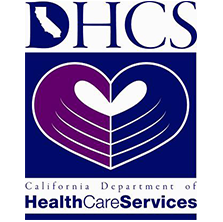Drug abuse and PTSD, both life-altering afflictions, compound the seriousness of each other’s symptoms when they affect a person simultaneously.
WHAT IS PTSD?
Post-traumatic stress disorder, commonly known as PTSD, is a condition characterized by the residual effects of emotionally and mentally scarring experiences. After surviving a traumatic event, some individuals will suffer from perpetual re-experiences of the event, such that their lives are significantly disrupted. These individuals suffer from PTSD.
WHAT IS A TRAUMATIC EVENT?
A traumatic event can be anything that is emotionally or mentally scarring to an individual, Often, these events center around physical violence, and are constituted by sexual or physical assault. Trauma can also result from persistent verbal or emotional abuse (including neglect). Essentially, a traumatic event is one in which an individual feels fundamentally violated. This violation may be physical, or it may be a violation of a person’s sense of security or understanding of the world.
When PTSD was initially discovered and analyzed as a legitimate condition, it was in the context of war veterans. For these men, trauma was a combination of physical violence and the emotional and mental shock of witnessing (and causing) so many deaths. Quite often, modern-day instances of PTSD follow the same model. There is a physical aspect of the traumatic experience, but the psychological impact of the event compounds the violation, rendering the victim emotionally crippled.
PTSD SYMPTOMS
The most notable symptom of PTSD is the re-experiencing of traumatic events, commonly referred to as “flashbacks.” Any circumstance that bears resemblance in any way to the circumstance of the original trauma has the potential to trigger such a flashback. This means that sounds, smells, physical sensations, emotions and situations that recall memories of past trauma are all threats to a person who suffers from PTSD. Because these threats come in so many forms and are constantly present, those with PTSD live in constant vigilance. They do not find safety even in sleep, when these flashbacks persist in the form of nightmares.
The other common symptom of PTSD is dissociation, which takes place as the mind’s means of self-preservation. When trauma is so great that it compromises a person’s ability to function, the mind protects itself by “numbing out.” Distancing oneself from reality makes life as a trauma victim easier in the moment, but is counterproductive in the long run. The more an individual has practiced dissociating, the harder it will be to work through core issues once the recovery process begins. As time passes, these deep traumatic memories become buried deeper and deeper within the subconscious, so much so that psychotherapy may be the only way to access them.
DRUG ABUSE AND PTSD
In the same vein as dissociation, substance abuse is a common coping mechanism for trauma victims. Drug abuse and PTSD often go hand in hand because intoxication does act in the short term as a means of protecting oneself from traumatic emotions and memories that reside within the mind. Unfortunately, as with dissociation, drug use only compounds a trauma victim’s long-term problems.
In addition to worsening the already sizable psychological burdens of PTSD, drug abuse creates its own set of problems. Psychological conditions like depression, anxiety, bipolar disorder, paranoia, visual and auditory hallucinations and schizophrenia can develop as a result of drug abuse, and PTSD patients are ill-equipped to deal with these additional afflictions. Drug abuse and PTSD, when combined, make emotionally and psychologically wounded individuals even weaker. For individuals who suffer from both of these conditions, treatment is of the utmost importance.
DUAL DIAGNOSIS TREATMENT: OVERCOMING DRUG ABUSE AND PTSD
For individuals who struggle with drug abuse and PTSD, recovery from either of these conditions is contingent upon effectively treating the other. If a person attempts to recover from PTSD but refuses to discontinue using drugs and alcohol, these substances will act as a barrier that prevents the trauma victim from accessing and processing emotions and memories that must be addressed in order for healing to take place. If a person attempts to quit using drugs and alcohol but refuses to address issues surrounding past trauma which drove her to drink and use in the beginning, she will be stuck in the perpetual fear and misery of unresolved trauma, which will prevent her from maintaining long-term sobriety.
SAFE HARBOR TREATMENT CENTER FOR WOMEN
For women looking for help with drug abuse and PTSD, a gender-specific treatment facility is the ideal setting for recovery. Because the feeling of violation is the defining feature of traumatic events, the locale of treatment must exude the opposite feeling – safety. A large percentage of the traumatic experiences that cause PTSD in women center around physical or sexual abuse at the hands of a male. Especially considering this fact, it is imperative that PTSD treatment take place in a single-sex setting. Women must feel comfortable and secure before they can undertake the intense emotional and mental task of working through past trauma.
At Safe Harbor Treatment Center, women have the opportunity to recover from drug abuse and PTSD alongside an intimate group of females who have come to do the same. Safe Harbor’s multilateral treatment program is comprised of structural therapeutic groups, individual counseling, 12-step work, life skills development and uplifting social activities. Groups like experiential therapy, art therapy and hypnotherapy help PTSD patients unearth aspects of their trauma they may have difficulty accessing, while individual therapy helps them work through their emotions and experiences on a personal level. Additional therapies like equine-assisted therapy and EMDR, both respected treatments for trauma victims, are options that are available to supplement each client’s individualized treatment program.
What makes Safe Harbor truly unique is its emphasis on community. The camaraderie that develops amongst the women at Safe Harbor as they work together to change their lives for the better makes treatment an experience of self-discovery as well as an experience of learning to help others by sharing personal experience. The sisterhood that forms is a beautiful and unparalleled phenomenon. All women looking for a chance to leave drug abuse and PTSD behind them have a place awaiting them at Safe Harbor.
START YOUR JOURNEY WITH
SAFE HARBOR HOUSE
(310) 861-4157
Contact Us Today
Verify Your Insurance




